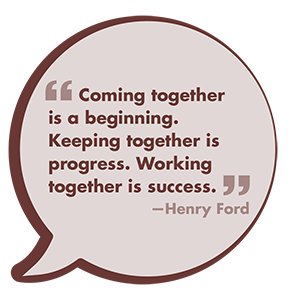June 8th, 2021 Use of Supervision and Management as a Worker Competency
2 min read

This June we examine the worker competencies involved with the Use of Supervision and Management. These competencies ask workers to recognize the importance of the supervisory role in achieving desired service and organizational outcomes for children, youth and families and other stakeholders, in assessing and managing performance, and enhancing the ability to achieve positive outcomes through continuous improvement efforts. Ideally managers and supervisors remove barriers and help workers get their jobs done. How can we best take advantage of our organizational structures and the various hierarchical roles so that we are most effective?
On a basic, foundational level, these competencies show up as helping workers understand how organizational structure, climate, and culture affect service effectiveness, worker productivity and morale. Look to your managers to understand the history and expectations of your workplace, and ask them to help you connect and be productive. Look to your leadership to understand the important role of and use of supervision in social work in providing support, knowledge, and growth as well as monitoring and appraisal of work, workloads, standards and performance, and in case consultation. Although workers and supervisors have different responsibilities and tasks, their partnership can result in better outcomes for families and children. It is possible that your supervisor may not be aware of obstacles in your work, and through healthy communication previously unforeseen solutions may be found.
As workers strive to develop a more advanced understanding of these competencies, teamwork can improve and collaborative approaches may lead to successful outcomes and better job satisfaction. Competencies at this level ask workers to understand the ethical and legal obligations of social work supervision. More than just a healthy collaborative relationship, workers can benefit from developing an empathic understanding of supervisor responsibilities and the expectations they face. Additional competencies state that workers understand the use of self in supervision, including the nature and use of power and authority, self-management of time, stress and role/boundary issues. As workers and supervisors connect and understand each others’ stresses – the fears, worries, and other concerns involved in this work – then we can better find ways to support our teams and see the results we hope to achieve.
Check out page 14 of the Minnesota Child Welfare Practice Framework to learn about all the worker competencies associated with the Use of Supervision and Management. Let us know if you have questions about this or any other competency, or how to integrate these competencies into your work.